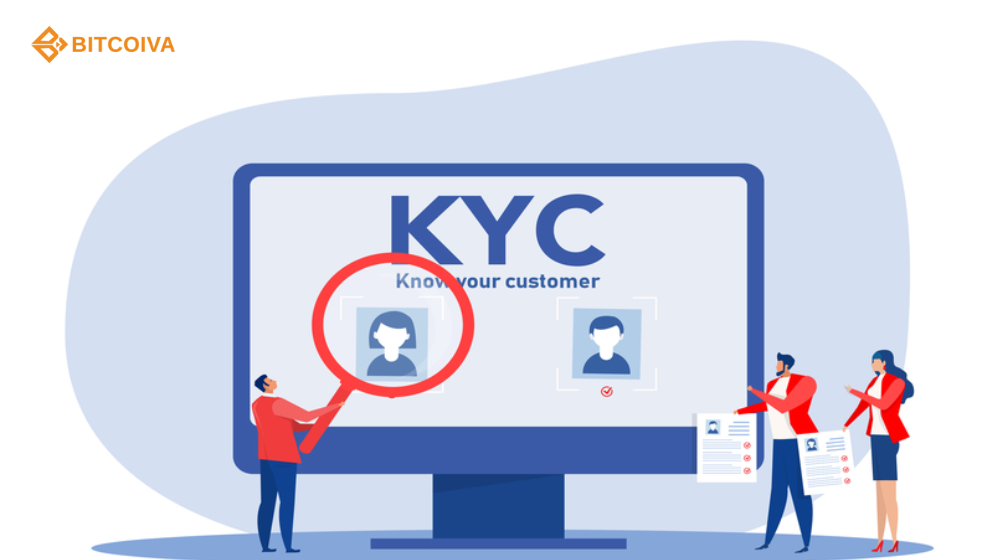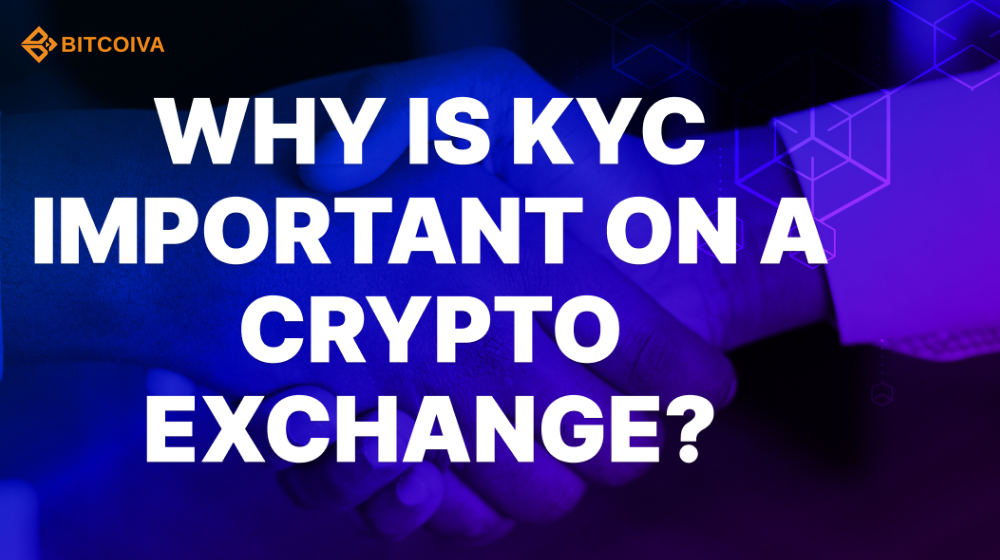As the globe is moving more and more to a digital future, more organizations are beginning to accept crypto as a payment method. However, as the use of cryptocurrency India has become widespread, so has the number of victims of scams and fraud. Businesses must execute efficient Know-Your-Customer (KYC) rules and procedures to protect themselves and their clients.
In addition to discussing the advantages of KYC compliance in general, this blog will clarify the idea of KYC verification. Let’s get started!
What is KYC in Crypto?
The KYC(Know Your Customer) process is used to verify a client’s or customer’s identification. This can be accomplished using official identification documents, such as a driver’s license or passport, or other methods, including utility bills or bank statements. KYC aims to verify that the customer or clients are who they are and control money laundering and other illegal activities.
Regarding crypto exchange, the KYC process is the first step in Anti-Money Laundering (AML) due diligence and helps crypto companies evaluate the risk levels associated with a consumer.
KYC is very important for crypto exchange India to follow AML requirements. Exchanges can help prevent illicit behavior like money laundering and other financial terrorism by confirming the identities of their customers.
To comply with KYC rules, crypto investors may be asked to produce additional evidence to prove their identity. Once the exchange has confirmed a customer’s identification, they can only create an account and start trading.
How Does KYC Function with Cryptocurrency?
Verifying a customer’s identity, KYC in crypto seeks to stop illegal activities like money laundering, tax evasion, and terrorist financing.
Some crypto exchange India may allow customers to create an account before they enter the crypto KYC process. Yet, these accounts are highly restricted until the ID verification process is complete. For instance, many cryptocurrency exchange India will only allow customers to buy or withdraw cryptocurrency once their identity has been verified.
Every crypto currency trading platform will handle KYC in its way. Yet, generally speaking, during the KYC process, you will require to provide the cryptocurrency exchange with the following details.
1. Full name
2. Date of birth
3. Residential address
Besides, the crypto exchange India will request a photo of a valid government-issued ID card, like a driver’s license or a passport. They will use this information to verify your identity. When your KYC is successfully verified, they will give you access to their services.

Can I Buy Crypto Without KYC?
Crypto ATMs and decentralized exchanges (DEXs) don’t need KYC. For example, crypto ATMs allow traders to buy cryptocurrency using cash or debit cards, whereas DEXs are blockchain-based P2P markets that allow large-scale crypto asset trading.
Advantages of KYC in crypto exchange
Even though operational adjustments and difficulties obtained by KYC laws, crypto exchanges stand to benefit significantly from maintaining compliance, including:
Increased customer transparency and trust
Identity verification can increase transparency and encourage client trust. Moreover, users are more likely to be with your business if they believe your crypto exchange is taking proactive and preventative measures to protect their accounts.
Decreased risk for money laundering and other scams
Since last year, there have been over 80,000 incidents of crypto fraud in the US, a 24,000% increase from 2016. Complete identity verification can gradually lower fraud and enhance a company’s reputation in the cryptocurrency market.
Reduced legal risk
Strong KYC processes can keep firms ahead of the curve because legal requirements constantly change. Instead of trying to catch up, they can focus on increasing conversion rates, expediting transactions, and assuring compliance with evolving international regulations. Organizations can lower their risk of facing legal challenges or regulatory penalties by proving KYC due diligence.
Improved stability of the crypto market
The crypto market is highly volatile due to anonymous suspicious or illegal transactions. However, the market can be stabilized, and its value advanced with increased identity verification as part of KYC initiatives.
Risks Involved in KYC Implementation
The crypto industry’s regulatory landscape is growing, and recent criminal practices make KYC compliance difficult. As a result, crypto exchanges should be aware of the following drawbacks and risks when developing and executing their KYC solution:
Anonymous transactions: Money launderers are granted a degree of online anonymity via crypto exchange transactions. Exchanges should therefore leverage digital controls to manage their identity verification procedure, including collecting client biometric data like face, voice, and fingerprint scans.
Transaction speed: The speed at which crypto funds can be transferred between accounts frequently exceeds AML/CFT conditions. Exchanges must ensure that their internal AML/CFT checks and tracking procedures may be used before sending money to user wallets.
Structured transactions: Money launderers may avoid reporting requirements by spreading their transactions over several accounts in tiny amounts. Crypto exchanges must guarantee that their controls prevent people from opening multiple accounts and that they share information with other financial service providers to detect and avoid structuring techniques.
Money muling: By pressuring or rewarding third parties, also referred to as “money mules,” to deploy crypto exchange services on their behalf, money launderers may attempt to use the weaknesses of crypto transactions further. By performing the necessary due diligence and identifying consumers whose profiles do not match their wealth or expected financial behavior, exchanges should try to identify money mules.
Final Thoughts: Is KYC a Safe Way in Crypto?
The KYC procedure seeks to prevent financial crimes like money laundering and economic terrorism. Exchanges can screen out malicious individuals and retain the system’s security by mandating that users provide personal information. The KYC procedure has flaws, though. For instance, users may need help with it. Further, there is always a possibility that hackers will use trades to get customer data.
The crypto community generally sees the KYC procedure as a necessary evil. Although it isn’t perfect, it’s one of the great ways to protect and safeguard exchanges against fraud and criminality.
Visit us at: www.bitcoiva.com

